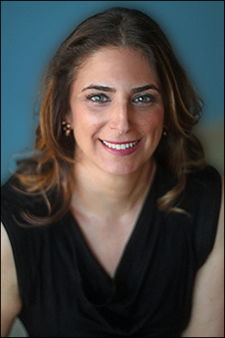| « Pulitzer Prize-Winner Sonia Nazario to Speak at DePaul University | Michael Penkas @ Tamale Hut Cafe » |
Author Wed Jun 26 2013
New York Writer Allison Amend Will Always Call Chicago Home
 I had never read any of Chicago native Allison Amend's work when she took over teaching my creative writing class for a legendary teacher on sick leave. Though she had rather large shoes to fill, she was unflappable, amazingly generous and available for her students. It wasn't until later that I found that that she's just as talented a writer as she is a devoted teacher. Her debut short story collection, Things That Pass for Love, won an Independent Publisher Book Award. Her first novel, Stations West, was a finalist for the Sami Rohr Prize for Jewish Literature. Her latest book, A Nearly Perfect Copy, is a brilliantly plotted character-driven novel involving con men, art forgery, DNA cloning, grief and loss.
I had never read any of Chicago native Allison Amend's work when she took over teaching my creative writing class for a legendary teacher on sick leave. Though she had rather large shoes to fill, she was unflappable, amazingly generous and available for her students. It wasn't until later that I found that that she's just as talented a writer as she is a devoted teacher. Her debut short story collection, Things That Pass for Love, won an Independent Publisher Book Award. Her first novel, Stations West, was a finalist for the Sami Rohr Prize for Jewish Literature. Her latest book, A Nearly Perfect Copy, is a brilliantly plotted character-driven novel involving con men, art forgery, DNA cloning, grief and loss.
Now an inhabitant of New York, Amend claims that Chicago will always be home. She answered a few questions about Chicago, research, and forgery.
You mention the Cubs in the first line of your official bio. Are you still a Cubs fan, and did that adequately prepare you for the pain and heartbreak that come with being a writer?
Once you are a Cubs fan, you are always a Cubs fan. It's in your blood, like that disease you caught in... like a regional accent. My grandmother was a Cubs fan until the day she died -- she did not live long enough to see the Cubs reach the World Series. I hope to live that long. And yes, the suffering of the Cubs fan, though, a unique and acute pain, does prepare you for the daily agony that is writing.
Since growing up in Chicago, you've lived all over and your work has also taken place in a variety of settings. Is that a reflection of your nomadic lifestyle? And what influence, if any, did growing up in Chicago have on you as a writer?
Chicago will always be home. I haven't lived there since 1992, but I consider myself a Midwesterner. There is a particularly Midwestern way of looking at the world -- ambitious but not entitled, practical rather than concerned with impressions. There's a lack of pretension in Chicago which does not mean that it's not sophisticated. Quite the contrary. Now that I think about it, why don't I live there? The weather. The weather sucks.
My work does take place in a variety of places -- though part of my first novel is set in Chicago, not much of my writing is. However, Chicago is still the default setting. If setting isn't mentioned -- it's Chicago. Chicago is a passive character.
Chicago, as I don't have to remind anyone, has a rich literary history. Growing up in the shadows of these greats, I felt allowed to write, as though my voice mattered.
The subject matter of your work is also quite expansive. Both your novels really immerse readers into cultures -- Jewish frontier settlers and art forgers and auctioneers -- that I imagine took a lot or research to capture the way you do. What drew you to these subjects? Were they long-term obsessions or things you delved more into as the novels took shape?
My mother's family is from Oklahoma, which people always find amusing. I originally wrote Stations West as a kind of a joke, which is why it is still known among close friends as the "Jewish Cowboy novel." But it quickly became a serious endeavor. And, yes, it took a lot of research over several years.
I promised myself, after writing a historical novel about Jews, that I would write a novel set in the future about Protestants, but A Nearly Perfect Copy didn't save me any research time, as I had to investigate art forgery and human cloning.
Of course, I also use research as a procrastination method. It's way more fun than writing and still counts as writing, right?
I didn't know I was interested in 19th century trans-continental train travel, or chemical techniques for judging authenticity in painting until I began these novels. And that's part of the fun of writing, discovering new areas of interest.
Reading about art forgery made me wonder about literary forgery. I have a dumb theory that some loft full of MFA dropouts is working feverisly on the next about-to-be-discovered posthumous Roberto Bolaño story. What would those hypothetical MFA dropouts have to do to create a nearly perfect copy of an Allison Amend story?
Well, it requires years of training and dedication (insert sarcasm). But on my best days, I hope to create compelling characters who, even through their mistakes, help you walk away with a bit more perspective on the world. If you're transported somewhere else for a while, so much the better.
Photo © Michael Lionstar









